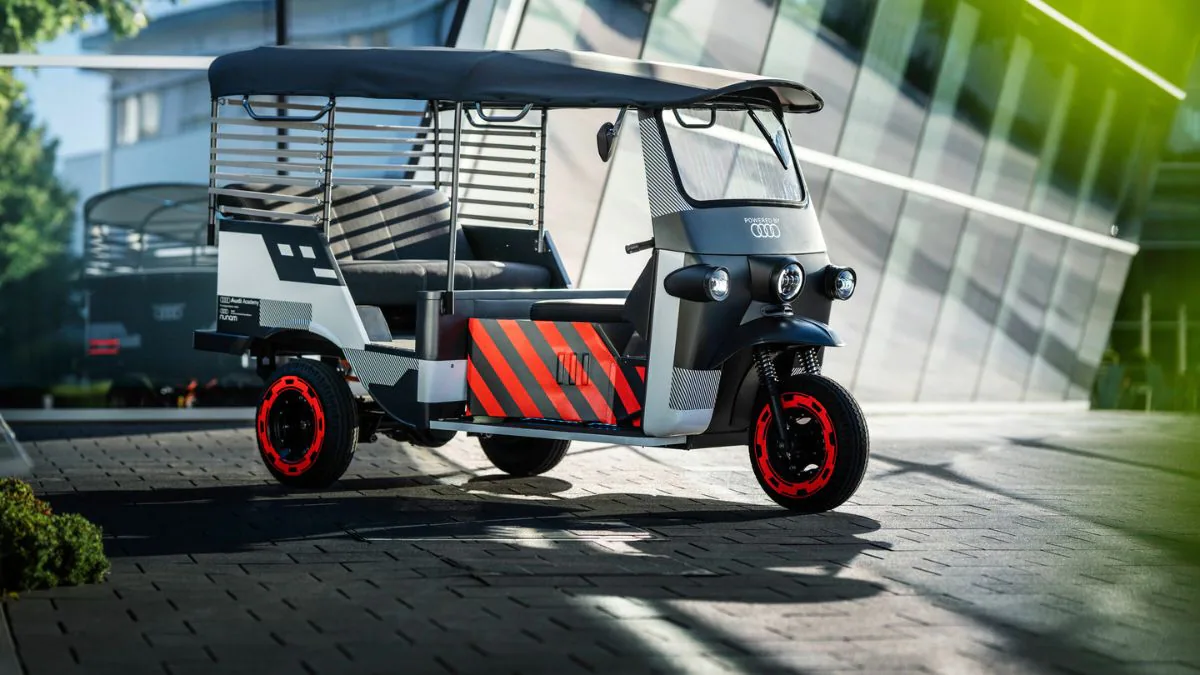An unexpected novelty from Audi is a battery-powered tuk-tuk (an alternative name for an auto rickshaw) for India, whose design uses used batteries from Audi e-tron test electric vehicles, charged using stationary solar panels.
The Audi electric rickshaw is the result of a collaboration between the Indian non-profit battery startup Nunam and the Audi Engineering and Logistics Training Center in Neckarsulm, Germany, and was developed with funds from the Audi Environment Foundation.
The project aims to explore the possibilities of recycling electric vehicle batteries in commercial motorcycles and help Indian women who have small businesses and need to transport products.
So far, three electric tuk-tuk prototypes have been built, and the first pilot batch will go to India to help local entrepreneurs in early 2023.
There are already hordes of locally made electric rickshaws roaming around India. Still, they use obsolete, inefficient lead-acid batteries, which are also improperly disposed of, while Audi supplies its tuk-tuks with modern lithium-ion cells from Audi e-tron electric vehicles – so far from those that they participated in factory tests. Later, exhausted batteries from client machines can be used.
In this case, resource depletion is understood as a drop in the actual battery capacity by a value quite noticeable for the consumer (for example, by 30-40%). At the same time, the cells remain operational and can be used on less heavy and faster vehicles, such as auto rickshaws.
After the next degradation phase, the cells are proposed to be used as stationary energy storage devices – for example, in charging booths with a solar panel on the roof, from which the tuttuki will be charged after a hard day. And only at the end of the third, stationary life cycle will the battery cells be appropriately disposed of – in this way, their potential is used to the fullest extent, per the concept of the so-called sustainable development.
Audi did not disclose the specific technical characteristics of its tuk-tuk: it is clear that it has a small range on a single charge and does not drive fast, but more is not required to take products to and from the market. Curiously, the modes of the power plant are in charge of the stylish gear lever from sports Audi.
The front panel is equipped with an analog speedometer, a service LCD screen, and a holder for a removable tablet. It is alleged that the design uses environmentally friendly materials based on recycled materials, and the battery is reliably protected from moisture.

